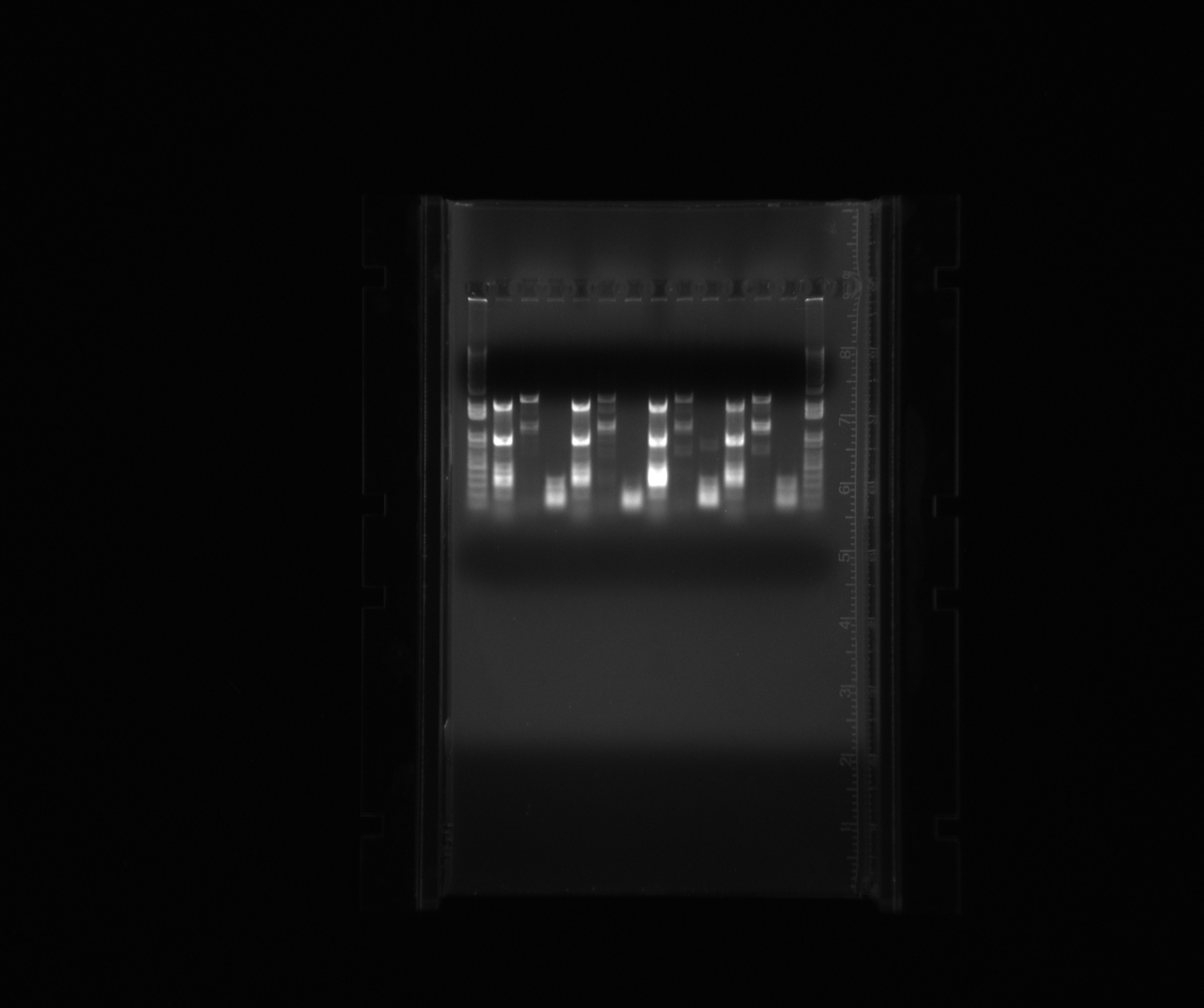Team:DTU-Denmark/Notebook/9 September 2013
From 2013.igem.org
(→Colony PCR to verify inserts HAO and Nir in pZA21::ara and pZA21::ara tight) |
|||
| Line 1: | Line 1: | ||
{{:Team:DTU-Denmark/Templates/StartPage|9 September}} | {{:Team:DTU-Denmark/Templates/StartPage|9 September}} | ||
| - | + | Navigate to the [[Team:DTU-Denmark/Notebook/8_September_2013|Previous]] or the [[Team:DTU-Denmark/Notebook/10_September_2013|Next]] Entry | |
=lab 208= | =lab 208= | ||
<hr/> | <hr/> | ||
Revision as of 22:01, 16 September 2013
9 September
Contents |
lab 208
Main purpose
Who was in the lab
Julia, Kristian, Henrike
Procedure
Colony PCR to verify inserts HAO and Nir in pZA21::ara and pZA21::ara tight
Colony PCR on the Nir transformants, testing for NirH (primers 45a, 45b, annealing 59C), NirM+S (primers 44, 11a annealing 64C) and NirN (primers 43, 11b annealing 68C).
program:
| temperature | time | cycles |
|---|---|---|
| 98C | 10:00 | - |
| 98C | 0:10 | 36 |
| 59C/64C/68C | 0:30 | 36 |
| 72C | 2:00 | 36 |
| 72C | 5:00 | - |
| 10C | hold | - |
Colony PCR to verify HAO insert.
Primers: 28a, 28b
temperature: 59C
Results
Transfomation
Transformation on last friday gave the following results:
- HAO in pZA21::ara (from Biobrick K808000) - 6 colonies (3 orange and small, 3 normal color and very big)
- negative HAO in pZA21::ara (from Biobrick K808000) - no colonies
- HAO in pZA21::ara tight - a lot of colonies, some very big
- negative HAO in pZA21::ara tight - a lot of small colonies
- Nir in pZA21::ara tight - 8 colonies
- negative Nir in pZA21::ara tight - no colonies
Gel
Gel on the results of the first colony PCR on the Nir transformants, testing for NirH, NirM+S and NirN
- 1 kb ladder
- colony 1, NirH
- colony 1, Nir M+S
- colony 1, NirN
- colony 2, NirH
- colony 2, Nir M+S
- colony 2, NirN
- colony 3, NirH
- colony 3, Nir M+S
- colony 3, NirN
- colony 4, NirH
- colony 4, Nir M+S
- colony 4, NirN
- 1 kb ladder
The gel picture is inconclusive. We will do another colony PCR using the primers designed for sequencing.
Navigate to the Previous or the Next Entry
 "
"





